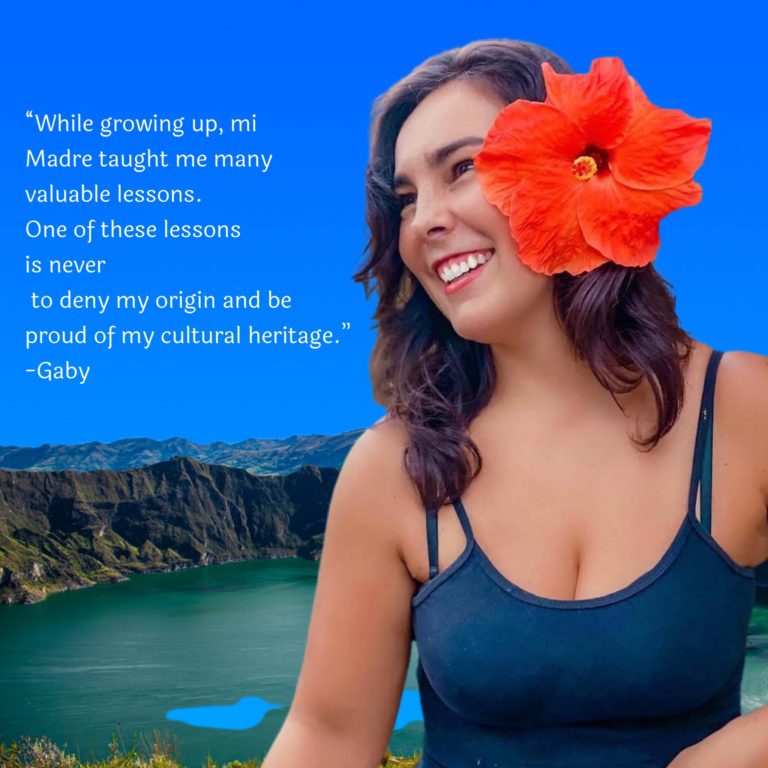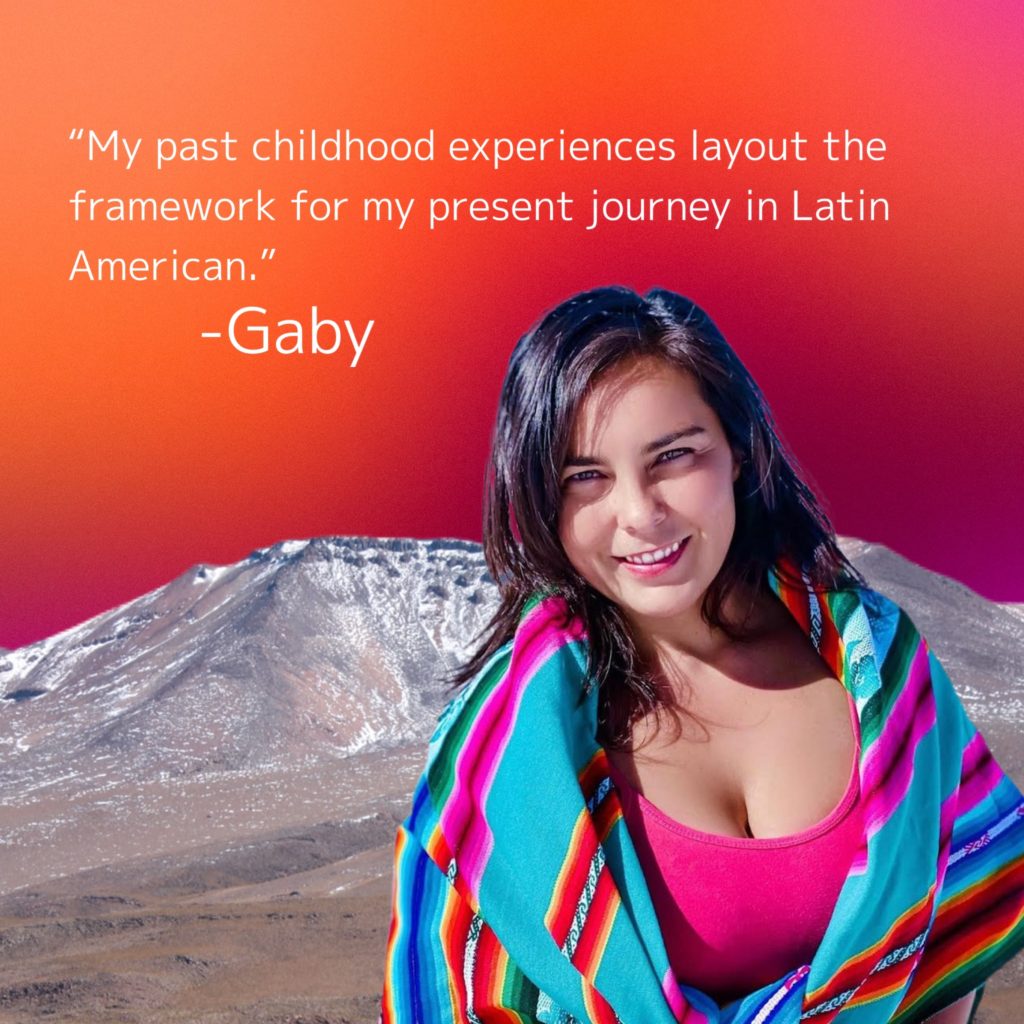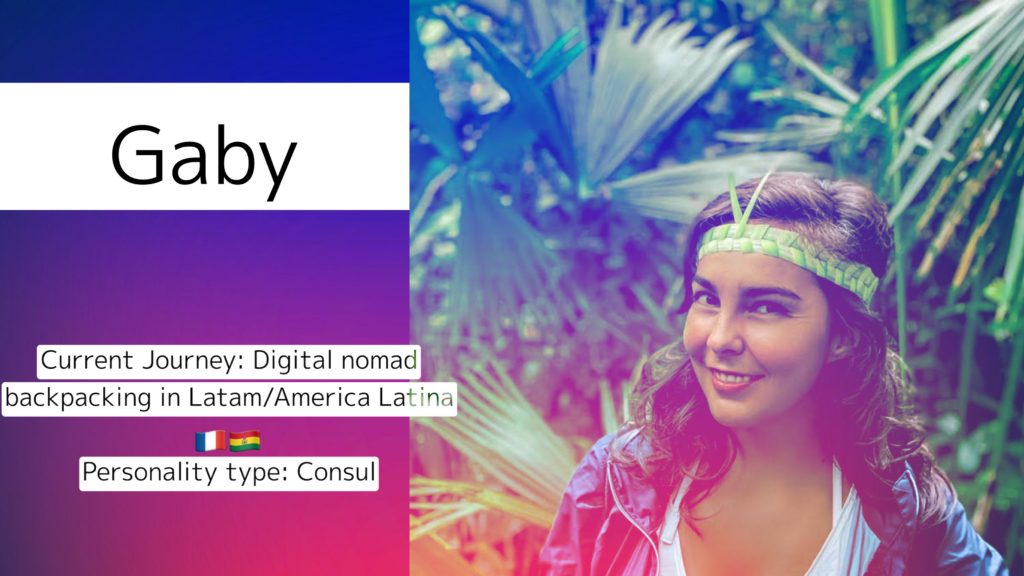My early Latam roots stem from my abuelitos community in Bolivia. Their lifestyle was different from my upbringing in France. As a child, the differences were prevalent but obscured for me to understand. I remember looking for answers to the following questions in Bolivia: Why do people speak another language, why don’t people have the same way of life everywhere? Why is the food not the same as in France? Why do you have to put your toilet paper in the trash going to the restroom? These questions confused me. My childhood experiences helped me be more open-minded.
Bound by the typical layout of Latin American homes, my abuelito’s bathroom was located on the “patio”. This detached space is different from some of the homes in France. The Patio held a personal experience for me. Allow me to share my childhood cultural experience with you. While on the patio, I decided to enter the bathroom to take a shower. After massaging my hair with shampoo, I tried to rinse it by turning on the water. Surprised by no available water, I shouted for my mother to come to my rescue, “Mamita, I have no water!” Without hesitation, one of my family members answered in Spanish, “La ciudad apaga el agua a esta hora”. Once again, my mother helped me by translating their explanation-The city turns off the water around this time. There’s no water at this hour, hijita, but no worries the family has stored water. I was surprised by this practice because I thought it was normal to have water all day like in France where I was raised. But this “normality” is not the same normality everywhere.

The “normality” of my family in Bolivia was to store the water. While growing up, mi Madre taught me many valuable lessons. One of these lessons is never to deny my origin and be proud of my cultural heritage. Also, as multicultural citizens of the world, we should embrace our cultural diversity con orgullo. Her advice is to pass this cultural legacy onto the next generation.


My mother gave me the best possible chance to win the battle of my birth and ancestral heritage by teaching me to respect both the French and Bolivian cultures. At the same time, showing me to be tolerant of the differences between these two cultures. Her creative immersion allowed me to have a solid foundation of my mother’s roots. Between Disney videos in English/Spanish and Bolivian music, my mother kept her cultural roots alive by nurturing my artistic ways. Her unique ways to develop a culturally aware Latam motivated me to be an ambassador of both cultural roots by being part of a Bolivian folkloric dance group in Paris and representing my Bolivian heritage at a beauty contest in France.


Spanish? When I was a child, I didn’t want to speak Spanish. I didn’t want to speak Spanish because, for me, it was not necessary to speak this language in France. My need for not speaking Spanish proceeded miles to Bolivia by not speaking to my mother’s family in Spanish; until my mother stopped supporting me. While on a family vacation in Bolivia, my mother decided to extract the 11-year-old unwillingness to participate in the language by not helping. Instead, I was left to form a sentence but with a one-word translation.
Huh? Yes, my mother can be a creative native teacher. She challenged me by allowing me to form sentences on my own with the aid of one-word translation; this was the ultimate challenge for me. I have no choice but to embrace the language and linguistically defend myself. This empowerment activated within me to improve my Spanish by choosing Spanish as a second language at school, in France.
My past childhood experiences layout the framework for my present journey in Latin American. Currently, I‘m backpacking in Latin American countries as a digital nomad. I now see the differences and similarities of both cultures. The culinary scene in France is all about the experience. In Bolivia, the saying says it all: we live to eat, we don’t eat to live. There’s always food to share in the family because eating together it’s an important moment for Bolivians. In Bolivia, being late is not a problem whereas in France is considered disrespectful. In Bolivia, people don’t have all the materialistic side of life, but they live happier because they are grateful for what they have. some communities have limit resources but they live a happier life. In France, complaints are part of the culture and it’s interesting to see this typical trait, because, in the end, people have the living essential. Based on my experiences both cultures enriched my life in many ways.
I can write a book based on my past and present cultural experiences but for now, I’m going to end with the following: My advice to fellow Latams… If possible, go back to your origins to activate your cultural roots. In doing so, you are going to ignite a part of you that is hiding within. This revelation is going to birth the “REAL TU” and is going to release an electromagnetic pull to connect with the rest of the world. Go find yourself, dear Latams, the time is now!


